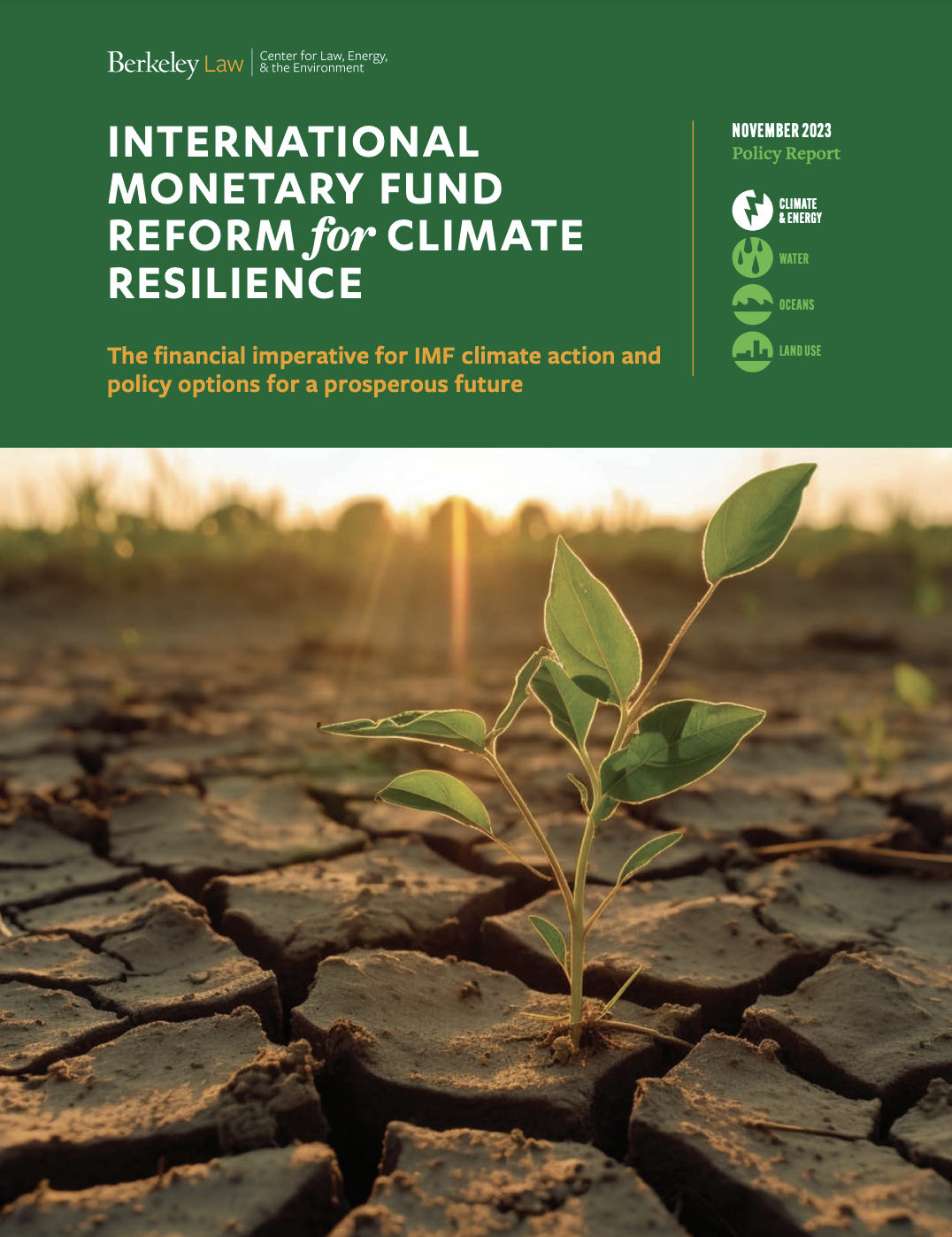November 2023
Climate change poses an unprecedented threat to global economic stability. The world stands to lose 10 percent of total economic value by 2050 under the current emissions trajectory, potentially much more if we pass irreversible climate “tipping points.”
CLEE’s new report, “International Monetary Fund Reform for Climate Resilience,” describes how the International Monetary Fund (IMF), a multilateral institution charged with maintaining global economic stability and growth, can help steer the international community toward a more sustainable economic future.
The report analyzes how current IMF lending and advising practices inadvertently worsen the climate crisis and the associated financial risk, and it outlines a comprehensive approach to address these challenges and overcome political, financial, technical, and institutional barriers to action.
Key recommendations include:
- Form a Climate Advisory Group to Develop an Enforceable Strategy: The IMF should establish a Climate Advisory Group consisting of diverse external experts to recommend updates to the IMF’s Climate Change Strategy and adopt legal requirements for timely IMF action. In support of this approach, this brief includes principles and objectives to guide the Climate Advisory Group, ensuring its effectiveness and impact.
- Explore A Suite of Bold Policy Options: Seven complimentary policy options are presented to reform longstanding IMF practices that exacerbate risk by (1) improving climate-related risk assessment, (2) expanding climate finance and alleviating debt distress in developing countries, and (3) curtailing fossil fuel profitability. Questions for further research and discussion should be a starting point for the Climate Advisory Group’s strategy development work.
The United States, as the largest shareholder in the IMF with veto power over major policy decisions, has a unique role to play in promoting IMF reform for climate resilience. This report calls on U.S. public officials to champion the recommendations in this report, while addressing climate change domestically and allocating new resources to support climate resilience in developing countries. U.S. business and civil society leaders can contribute by building support for IMF reform.
CLEE published an Op-ed in The Hill on this topic on October 18, 2023.
Contact Ken Alex (ken.alex@berkeley.edu) for more information.
